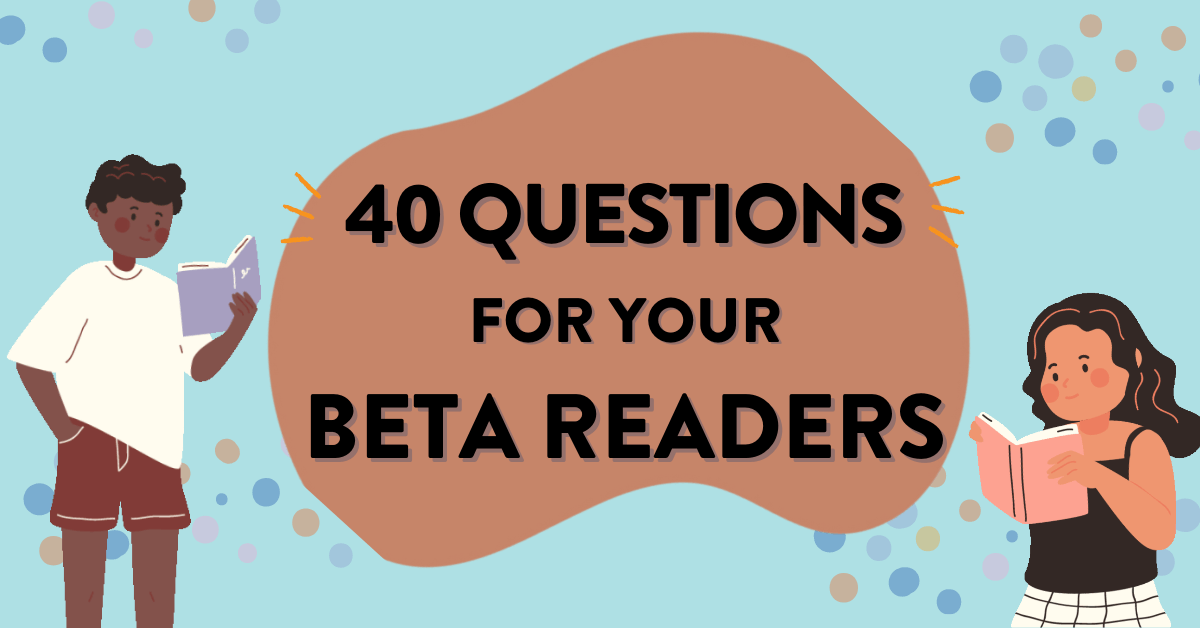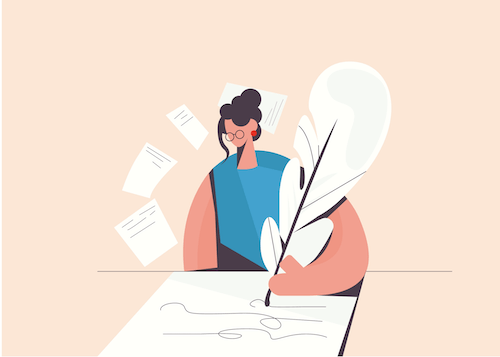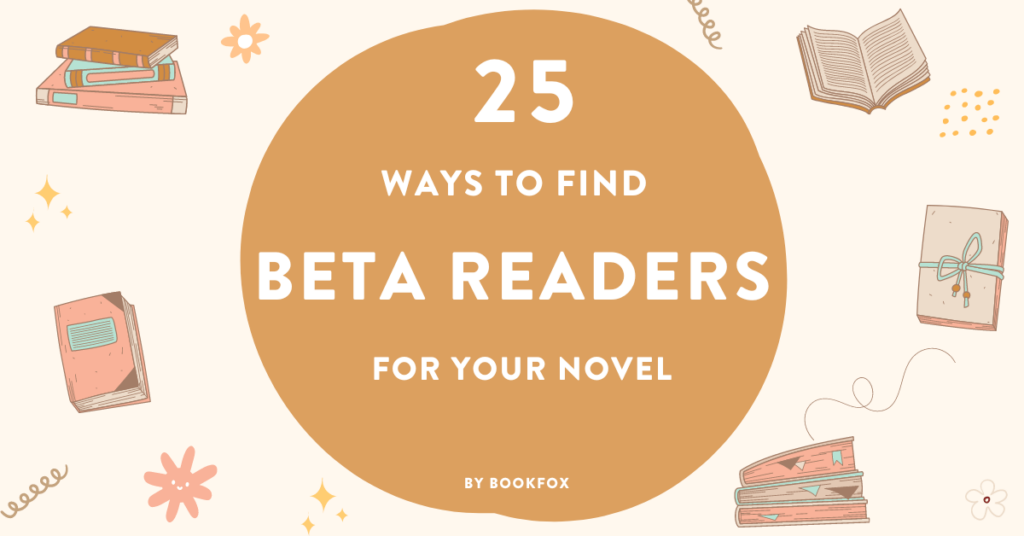
I’ve seen a lot of beta reading questions around the internet, and they’re mostly bad.
You don’t want to give the same set of questions to every beta reader.
It’s best if you hand-select questions for each reader based on what you know about them. For instance, the questions you want to ask a casual reader are vastly different than the questions you want to ask a beta reader who is a writer.
So in this post, I’m going to give you a different set of 10 questions for different types of readers.
Take a look at the different sets of questions below, and pick the one which is *just right* for your beta reader.
And if you haven’t yet read my post, 25 Ways to Find Beta Readers, I’d suggest you hightail it over RIGHT NOW and read it.
Casual Readers
This first set of ten questions is excellent for casual readers.
So don’t give this list to writers, or to seriously advanced readers.
It’s a simple set of questions designed to coax information out of somebody who usually isn’t too eloquent when asked about books.
It’s also a set of questions when you don’t know the beta reader at all, don’t know their background. It’s kind of a foolproof list of questions.
You’re trying get more out of them than: “I liked it. It was great.”
10 Questions for Casual Beta Readers
- Did the book seem too long or too short?
- Did you get bored anywhere? Where?
- What didn’t make sense to you?
- Did you like the main character?
- Did you feel like you knew this place and time? Were there enough sensory details to sweep you away?
- Did you like the ending?
- Could you tell the characters apart?
- Did the dialogue sound like it came from real people?
- What parts did you like best?
- What parts did you like least?
Advanced Readers

Now, perhaps you have a great relationship with your beta reader.
You know them well, know their reading abilities, and you want to get maximum information from their skills and insight.
In that case, you can ask a different series of questions: a more advanced series of questions.
Use this list of questions if:
- they have read one of your previous books
- they are a prolific reader (50+ books a year, minimum)
- they are a scholar or have advanced degrees in English
10 Questions for Advanced Beta Readers
- Would you keep reading after the first chapter? Why?
- What was the main theme of the book, and was it well developed?
- Did the plot make sense to you?
- Did the story get bogged down in the middle?
- Was the ending emotionally fulfilling?
- Who does this story belong to? Were they the most fascinating character to you?
- Were the motivations of every character clear?
- What did each character desire in this book?
- Were there too many characters? Did you lose track of who was who?
- Did you notice any discrepancies in time, places, characters, places or details?
Writer Readers

Is your beta reader a writer? Then I would give them this series of questions.
It focuses a bit more on questions and ideas that writers can give answers to (while readers wouldn’t be able to answer).
They know the language of craft, and are able to give better and more specific advice about what you might be doing wrong and how you can change it.
10 Questions for Writer Beta Readers
- Was the early promise of the plot fulfilled later on in the story?
- List the weakest two chapters in the book, and say why you found them needing revision.
- What character was the least developed?
- Was there anyplace where the narrative told the reader information rather than showed it?
- Did the grammar, punctuation, sentences, or prose help or hinder your reading of the book?
- Does the story move too slowly or too quickly in any parts?
- Does the book have a good sense of place and immerse the reader in sensory details?
- Did the point of view stay consistent throughout the whole book?
- Do any chapters lack enough conflict? Is there a good mix of inner conflict and conflict with others?
- How was the writing voice of the book? Was it distinctive? Was it authoritative?
Genre Readers

If you’re writing in a very specific genre with expectations from readers of that genre, these are the questions you should be asking.
That’s because your book not only needs to be good, it needs to deliver what the genre promises. It could be an incredible story, but if it doesn’t deliver what your target audience is looking for, it’s going to fail faster than an elephant trying to pole vault.
By genres, I’m talking about fantasy, sci-fi, YA, westerns, Christian, romance, etc. A genre with a set list of expectations in terms of content, plot, and endings.
I’d recommend removing all the “this genre” phrases in this list and replacing them with your specific genre name.
10 Questions for Genre Beta Readers
- Is this book too close to any popular books in this genre?
- Does this book make you feel what other books in this genre do?
- Based on reading other books in this genre, what did you expect would happen, and were your expectations met?
- Do you think the target audience for this genre will enjoy this book? Why or why not?
- Does this book break any specific rules of the genre?
- Would you want to continue reading this series? Would you recommend it to fans of this genre?
- Did anything seem implausible to you?
- How would you describe this book to a fellow reader of the genre?
- What two other books in this genre best describe it? (“Like Hunger Games mashed up with Dune.”)
- What do you really enjoy in this genre that wasn’t present in this book?
Fan Reader

This is a reader who has read something of your writing before.
Maybe they’ve already read:
- a previous part of this book, and are semi-familiar with it already (or you have told them the outline)
- maybe they’ve read some of your short stories
- They’ve read a previous book in the series
In this case, they already have familiarity with the book or with the characters/storyline, and you can ask a different set of questions.
10 Questions for Fan Beta Readers
- Does this writing seem in line with my previous writing? How is it different?
- Does this book continue the previous storyline in a fulfilling way?
- Do the characters seem like they’re the same people as the earlier book?
- Does this book merely repeat the conflict and themes of the first book, or does it move beyond it?
- Do you feel like my skills are improving as a writer? How?
- Would you read the next book in the series? Why?
- What do you imagine will happen in the next book?
- Does this book feel self-contained, or would a reader need to read the previous book (or the next book)?
- Was there anything inappropriate that made you cringe?
- Does this feel like it’s the same genre as my previous work?
Hope those questions help!
And to find Beta Readers, read my post on 25 different places to find them (and how to treat them as well).
Check out the additional related posts below or leave a comment about what other questions work great for Beta readers.

